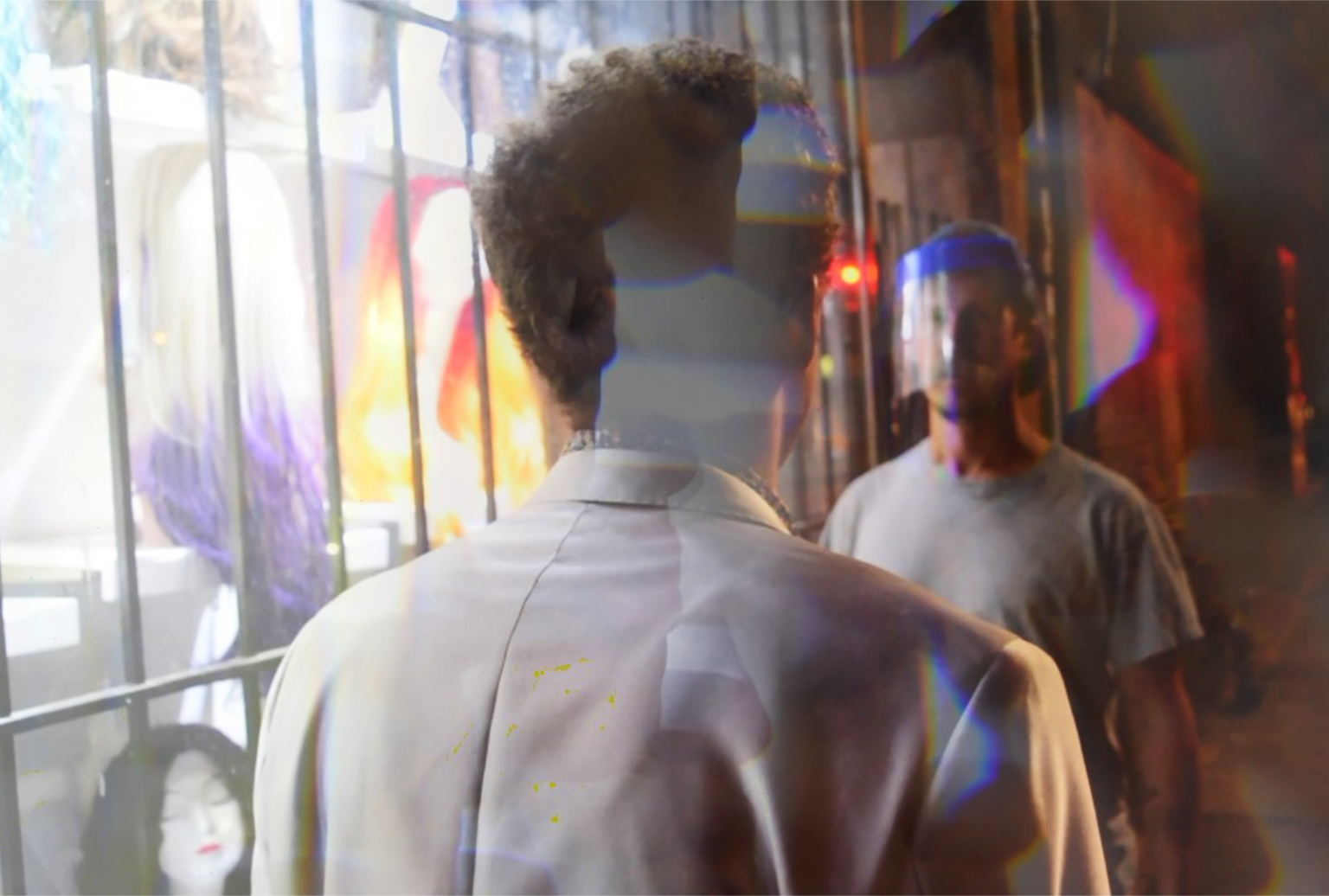
- This event has passed.
Low-Quality in collaborative Ethnographic Filmmaking
2024-11-07 | 17:00

Join the Ethnography Lab for the 2nd screening of the season! This session will feature the screening of four short films by Jared Epp, Leo Stillinger, Melina Campos and Marie Lecuyer.
This event will explore an experimental modality of ethnographic filmmaking that anthropologist Jared Epp calls the ‘ethnographic B movie’, a novel approach to collaborative multimodal research. This approach – which encourages unprofessionalism, low quality, absurdity and caprice – provides an opportunity to centre research contexts, ontologies and epistemologies on the fringes or margins of conventional anthropological content, thought and context. Through situating the approach within ideas of arts-based research or research-creation the ethnographic B movie becomes a way to take the process of filmmaking as ethnography for the sake of an open and co-imaginative world. In the ethnographic B movie as filmic approach and representational frame, communicable meaning and narrative coherence are substituted for the spirit of co-creation, and interlocutor-driven content (Epp, 2023).
Music Sound Noise by Jared Epp, 16min
Music Sound Noise is a cautionary tale on the endless entangling of information sharing, social media, meaning and daily life, and as well, a satire on the anthropologist as colonizer of knowledge.
Dr. Carlos Popper, a positivist ethnographer arrives in the neighbourhood of Parkdale, Toronto, to study the growing concern of people vanishing into total virtual reality (the film was shot during the summer of 2020). On his journey he encounters Mr. Noise, who embodies the desire for the virtual and tries to lure Popper to join him. Representing the liminality between the virtual and physical, Mr. Sound, another resident of the neighbourhood, tries to save Popper.
Jared Epp is a PhD Candidate in social anthropology from Carleton University in Ottawa, Canada. His research focuses on the intersection of place, imagination and precarity in a Canadian urban context. He is currently based in Edmonton, Canada, finishing his dissertation and working as a community arts facilitator with individuals living unhoused and/or with a concurrence of mental health barriers and addictions
Grandmother by Melina Campos Ortiz, Heather Dirckze and Charanpreet Khaira, 6min
In presence of Melina Campos Ortiz
Grandmother tells the story of migration through the faces that you might not associate with the anger and hatred that fuels British news and politics: the faces of Granny, Naniji and Baba – three ordinary grandmothers.
Melina Campos Ortiz is a PhD student in the department of Sociology and Anthropology at Concordia. She uses Feminist Science and Technology Studies to explore human-soil relations in organic farming in Quebec, paying particular attention to Central American migrant workers’ experiences. She currently coordinates an SHRCC-funded project that seeks to strengthen the ties between ethnography labs in North America.
Gwo Ging by Marie Lécuyer, 25min
Gwo Ging (meaning « to transit through the border ») is an experiential ethnographic video that explores the perception of disappearance of the dead from the realm of the living in Hong Kong’S saturated archipelago. The pressure from urbanization along with new government policies promoting green and “oceanic” burials have been reconfiguring ways of caring for and re-membering the dead. Once immersed in water, and without a stable resting place to call home, the dead are removed from the « liquid ecology » that flows between the environment, the deceased and their descendants by way of paper offerings, simulacra of banknotes and gold or silver ingots. The film aims to offer a counter-gesture to the perception of disappearance of this spectral ecology by rendering visible the gestures by which undertakers take care of the dead through pyrotechnic rituals feeding a vital breath that animates the living and the dead alike.
Marie Lecuyer is a postdoctoral fellow and the co-lead of the Critical Media Club in the department of anthropology at McGill University. Her doctoral thesis focused on the oceanic turn in funeral rites in the Hong Kong archipelago and explored the way in which an oceanic environment dissolves traces of past lives and reconfigures ways of commemorating the dead. At the crossroads between environmental anthropology, death studies and media studies, her research is interested in modes of infraperceptible presence and uses multisite and multimedia methods. Her current research focuses on ways of anticipating and remediating flooding phenomena in Hong Kong and Ottawa.
Trail Days by Leo Stillinger, 15 min
Trail Days is an ethnographic reverie depicting a festival of hikers in Damascus, Virginia, along the Appalachian Trail. The film was shot on GoPro and iPhone during fieldwork with thru-hikers on the Appalachian Trail, which stretches more than 3,500 kilometers from Georgia to Maine in the eastern United States. Those who attempt to hike the entire trail end up forming a sub-culture of their own, hidden in the woods of the Appalachian mountains, but emerging occasionally to produce a unique and dreamlike atmosphere in the small towns they pass through—most notably in the annual Trail Days festival in Damascus, where every year in late May twenty thousand people, hikers past and present, descend on a town with a population of less than eight hundred.
Leo Stillinger is a writer and filmmaker based in Montreal. His first film, An Urban Wild, was screened at the Festival International de Film Éthnographique de Quebec (FIFEQ) in 2023. He recently completed a Master’s in Anthropology at McGill University, focusing on the experience of long-distance hikers on the Appalachian Trail.



